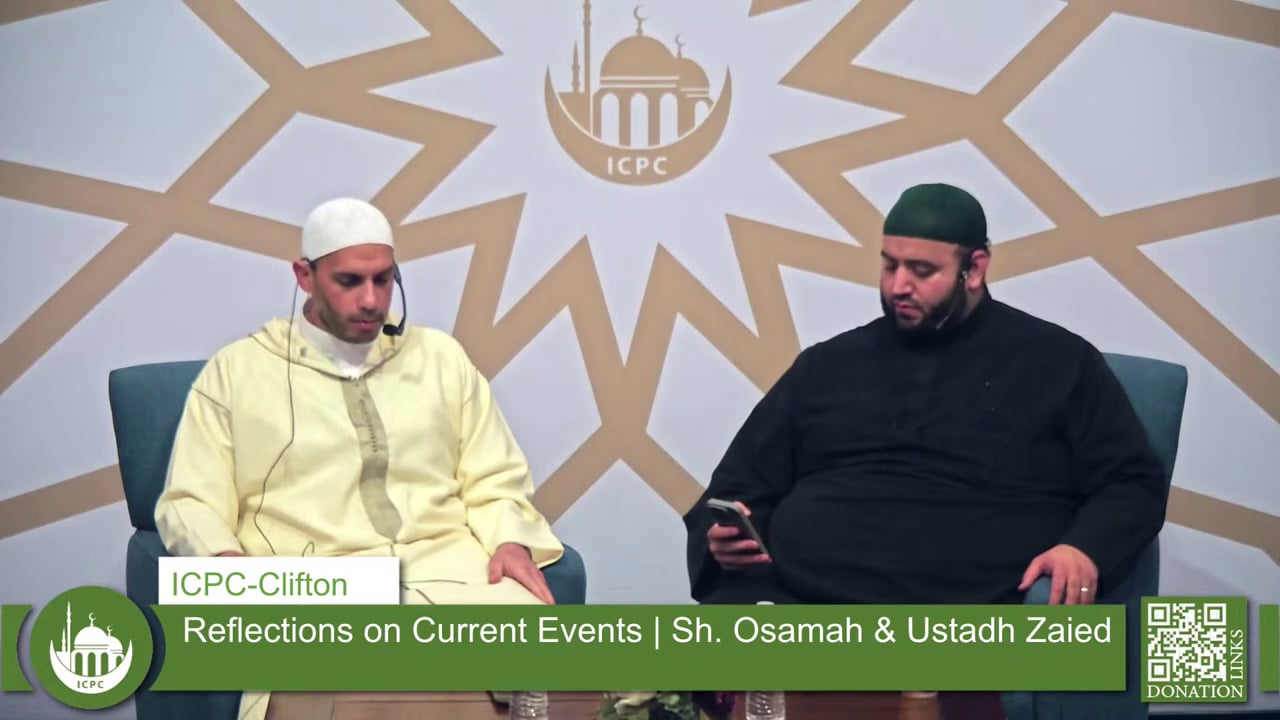
Sheikh Iyad Abu Funun appeared in a segment on Hamas' Al-Aqsa TV (Gaza Strip) in which he gave viewers advice on how to properly carry out terror attacks. The video shows two young men cleaning and loading guns with a mobile phone on the table next to them, and Abu Funun explained that this is a "deadly mistake." He warned that merely having a phone in your vicinity is enough for you to be tracked. He also said that the attackers must not use their own cars, use their regular routes, or hold their weapons during transit in a way that is visible. He also urged attackers to avoid behavior that appears out of the ordinary before the attack and said that the attackers must hide their weapons and return to normal life immediately after the attack. Abu Funun said: "The more well-organized the attack is and the larger its impact – with many dead soldiers and settlers – the more the attack reverberates [in our society]." The segment aired on October 20, 2018. To see more videos by Abu Funun, see MEMRI TV clips 6541, 6376, 4702, 5115, 5307, 5152, and 4489.
Following are excerpts:
Iyad Abu Funun: Let's look at the mistakes that we have seen in the video. Keeping a mobile phone next to the attackers is a deadly mistake. Some people might say: "But he did not speak on the phone. It doesn't matter. It is enough that the phone is next to you or in your vicinity for it to be tracked.
[…]
If I want to carry out an attack, I need to get there somehow. It is a grave mistake to use my own car, or that of a friend or a neighbor, and to hold my weapon in such an obvious way, for any passerby to see. One must take some normal and uncomplicated security precautions.
[…]
Cars can be problematic in military operations. I am not telling you to not use cars, just be smart and careful. The car might lead the Shin Bet to you. Avoid cars and don't use your normal routes.
[…]
Dozens of groups have been caught while carrying out an attack or prior to that. Why? They looked anxious. They did not act naturally and it showed. They went to the mosque and prayed and read the Quran all day. Anybody who saw them could easily tell that they were about to carry out an attack. They saw that [the perpetrator] shaved or groomed himself, and they realized that something was going on.
[…]
The most important part is the actual attack. After we conduct surveillance and take security precautions, we carry out the attack, and then we must make sure not to leave any trace. Let's say we carried out an attack in the north, center, or south [of Gaza]. We must immediately hide the weapons, and not take them home with us.
[…]
Once we hide the weapons, we must immediately return to our normal lives. You cannot vanish for 2-3 days after the attack. You cannot sleep at your cousin's or your neighbor's place in order to avoid being captured. Any change in your routine leads them to you.
[..]
You must go back to your normal life and live like everybody else. When people are happy about the attack and shout "Allah Akbar," you do the same. You know, our people like successful attacks. The more well-organized the attack is and the larger its impact – with many dead soldiers and settlers – the more the attack reverberates [in our society]. Allah willing, we fighters will be able to carry out such attacks after following the necessary steps. If we take these precautions, we will be successful. We will make our people happy. We will make the mothers of the martyrs happy, as well as the prisoners, the bereaved, the displaced, the eight million refugees who are scattered everywhere, and the Arab and Islamic nation, because these attacks are held in high esteem by Allah and His servants.














